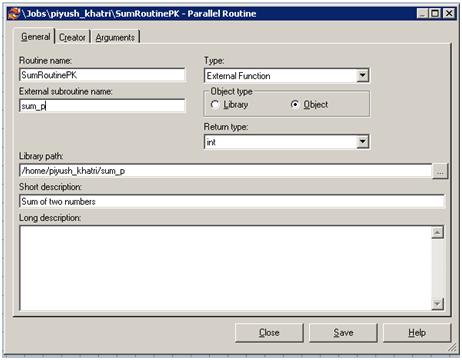1. AlNum(%string%)
Allnum(“12345”) --- output-1
Allnum(“abcd”) --- output-1
Allnum(“ab125”) --- output-1
Allnum(“@a12345”) --- output-0
Allnum(“@a1 2345”) --- output-0
Except Special Symbols (Letters & Numbers) it will give
output as “1”
2. Alpha(%string%)
Alpha (“abcd”) --- output-1
Alpha (“12345”) --- output-0
Alpha (“ab125”) --- output-0
Alpha (“@a12345”) --- output-0
Alpha (“@a1 2345”) --- output-0
3. Compactwhitespace(%string%)
It reduces or replaces multiple spaces into single space.
Ex: CompactWhiteSpace("sud
hee r")
Out Put: sud hee r
4. Space(length):
Inserts no.of white spaces given in lengthy parameters.
Ex:-Space(6):’Brahma’
Output: Brahma
5 . Len(string):
Returns length of string in characters
Ex:- Len(space(6):’Brahma’)
Output---12
Ex:- Len(“Brahma”)
Output—6
6. Compare(String1,String2,[Justification]): //case sensitive
Compares String1 & String2,if String1 is greater than
String2 it will result 1
If String1 is less than String2,then it will result 1.
If both the strings are equal then it will result 0.
To compare String1 with String2, we give Justification:L
To compare String2 with String1,we give Justification:R
Ex: Compare(“abcd”,”abc”,”L”)---output-1
Compare(“abcd”,”abc”,”R”)---output-0
Compare(“abc”,”Abc”)---output-1 Default Justification-L
Compare(“abc”,”abcd”)---output -1
7. CompareNoCase(String1,String2):
Same as Compare,but diff is this function is NOT case
sensitive.
In this function no argument called Justification.
8. CompareNum(String1,String2,length):
Compares two strings up to the given length.
Ex:- CompareNum(“a”,”abc”,1) output---0
CompareNum(“a”,”abcde”,5) output--
-1
CompareNum(“abcde”,”a”,5) output---1
CompareNum(“abcde”,”Abcde”,1) output---1
CompareNum(“Abcde”,”abcde”,1) output--
-1
9. CompareNumNoCase(String1,String2,length):
Same as CompareNum, diff is this function is NOT case
sensitive.
Ex:- CompareNumNoCase(“Abcde”,”abcde”,5) output---0
CompareNumNoCase(“abxye”,”abcde”,5) output---1
CompareNumNoCase(“abcde”,”abxde”,5) output--
-1
10. Upcase(String):
Change all lowercase letters in a string to uppercase.
Ex:- Upcase(“brahma”) output—BRAHMA
Upcase(“braHma”) output----BRAHMA
11. DQuote(String):
Enclose a string in double quotation marks.
Ex:-
DQuote(Upcase(“brahma”)) output---“BRAHMA”
DQuote(‘brahma’) output---“brahma”
12. Field(String,delimiter,occurrence,number):
Returns the substring before delimiter based on occurrence
we are given.
Ex:- Field(“br_ah_ma_na”,”_”,2) output---ah
Here ah is substring before the second occurrence of
delimiter ‘_’.
Field(“br_ah_ma_na”,”_”,3) output---ma
Here after ma _ is third occurrence.
Field(“br_ah_ma_na”,”_”,1,4) output---br_ah_ma_na
Field(“br_ah_ma_na”,”_”,1,2) output---br_ah
Field(“br_ah_ma_na”,”_”,1,3) output---br_ah_ma
Field(“br_ah_ma_na_a”,”_”,1,5) output---br_ah_ma_na_a
Note:-
Field(“brahmananda”,”a”,2) output—hm
Here ‘a’ is delimiter
Field(“brbhmananda”,”a”,2) output—n
Field(“brhhmananda”,”a”,1) output—brhhm
Field(“brahmananda”,”a”,1,3) output—brahman
13. Index(String,substring,occurrence):
Returns starting character position of substring.
Ex:-
Index(“brahma”,”a”,1) output---3
Index(“brahma”,”a”,2) output---6
Index(“brahmananda”,”a”,3) output---8
Index(“brahmananda”,”na”,1) output---7
14. Convert(fromlist,tolist,Expression)
Converts specified character in a string(given in expression
arg) to designated replacement character
Ex:-
convert(“a”,”y”,”brahma”)
o/p:byhmy
convert(“ah”,”y”,”brahma”)
o/p:brymy
This function performs character replacement, but not word.
Ex:
convert(“brahma”,”msrmad”,”brahma”)
15. Count(String,Substring):
Count number of times a Substring occurs in a String.
Ex:Count(“brahma”,”a”)
o/p:2
Count(“brahmabaabaaba”,”ab”)
o/p:3
Count(“brahmabaabaaba”,”ba”)
o/p:3
16. DCount(String,Delimiter):
Count number of delimited fields in a string.
Ex: DCount(“br-ah-ma-na”,”_”)-------o/p:4
DCount(“br,ah,ma,na”,”,”)-------o/p:5
DCount(“br,ah-ma,na”,”,”)-------o/p:4
ah-ma, treats as
one field
17. Downcase(String):
Change all uppercase letters in a String to lowercase
Ex: Downcase(“BRAHMA”)------o/p:brahma
Downcase(“brHMA”)------o/p:brahma
Downcase(“BRAhma”)------o/p:brahma
18. Left(String,length)
Returns leftmost ‘n’ characters of the string, where n is
length.
Ex: Left(“brahmananda”,4) o/p:brah
Left(“bra__hmananda”,6)
o/p:bra_hm
19. Right(String,Length)
Returns rightmost ‘n’ characters of the string
Ex: Right(“brahmananda”,4) o/p:anda
20. Num(String)
Returns 1 if string can be converted to a number.
Ex:
Num(“brah”) o/p=0
21. PadString(String,PadString,Padlength)
Returns the string padded with the optional pad character
and padlength is the number of times it add to the original string
Ex: PadString(“brahma”,”+”,5) o/p:brahma+++++
PadString(“brahma”,”reddy”,5) o/p:brahmarrrrr
22. Str(String,repeats)
Repeats the input string no.of times given in repeats
Ex: Str(“mbnr”,2)
o/pmbnrmbnr
23. StripWhiteSpace(String)
Returns the string after stripping (removing) all white
space from it.
Ex: StripWhiteSpace(“br a h ma”) o/p:brahma
